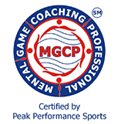The criteria by which fields are assembled on the PGA Tour is considerably more byzantine than over on LIV Golf, where competitors require only the blessing of Greg Norman and amoral ambivalence about the abuses and butchery of their princely benefactor.
The Tour’s official list has 39 exemption categories, ranging from the obvious (winners of majors and the FedEx Cup) to the arcane (PGA Section champions, players with 300 career made cuts). They’re ranked by priority and not every classification is used at every event. The Zurich Classic, for example, used 20 categories to compile its field, a trickier construct than usual since the tournament is comprised of 80 two-man teams.
The most opaque criterion has always been sponsor invites, in which those who write the checks are granted tremendous latitude in deciding who gets the call for a handful of spots. As a general rule, that’s fair. Sponsors ought to have a say in drawing attention to their tournaments and not be hostage to filling tee times from a pre-determined pecking order of pedestrian pros, even if the basis for extending invitations appears parochial.
In February, Ricky Barnes was gifted a spot in the WM Phoenix Open — a designated event with a $25 million purse — for no apparent reason other than that he lives locally and is popular with the event organizers.
But an exemption category intended to benefit a tournament can also be a detriment when improperly applied.
When two-time PGA Tour winner Michael Thompson was added to the field at the Zurich Classic, he chose as his team partner Paresh Amin, a 43-year-old military veteran with a beggarly record on mini-tours, and who shot 42-over-par in Q-School for the Mackenzie Tour.
“He’s become my really good friend,” Thompson explained to my colleague, Adam Schupak. “I haven’t had any success with a partner in the team format. If I was going to play a team event, I wanted to be with someone I really liked. He’s trying to play professionally and I wanted to give him a chance to experience a PGA Tour event, meet the equipment reps, meet the caddies.”
In the opening round of best ball, when scores are typically lower, the pair managed only a 71 that placed them 77th among the 80 teams. A 75 in Friday’s alternate shot format dropped them another two spots.
“These guys out here obviously have an advantage over me,” Amin told the Times-Picayune, the local paper in New Orleans. “They’ve been doing it their whole life. I’m just trying to crack the code and make it full-time out here.”
Somewhere, the ghost of Maurice Flitcroft laughs.
Thompson and Amin were spared the indignity of last place only thanks to another pair of sponsor invites: David Duval and John Daly. Zurich presumably hoped the name recognition of these former major winners would draw eyeballs to an event that sits in no man’s land on the calendar, wedged amid majors and designated stops. The tournament could boast some quality names — Cantlay, Schauffele, Fitzpatrick, Morikawa, Homa — but too many others who would be recognized only by job-seeking caddies or alert process servers.
The problem is that Duval and Daly are woefully uncompetitive even on the PGA Tour Champions, much less a more demanding stage. Duval is 0-for-25 in cracking the top 10 in his senior career, while Daly has done so just once in his last 33 attempts. Predictably, their performance was execrable: rounds of 75-83 secured last place by 12 shots. Perhaps the few spectators who were imperiled by the team’s wayward shots enjoyed seeing the old timers, but there are ample reasons why some of their fellow Tour players might not.
Each member of the winning team in New Orleans earns more than mere cash: fully exempt status through 2025, 400 FedEx Cup points, spots in the upcoming PGA Championship, Charles Schwab Challenge and Memorial Tournament, plus entry to the 2024 Sentry Tournament and Players Championship. It’s a heck of a return for only hitting half of the shots in half of the rounds.
FedEx Cup points are the currency of the PGA Tour, and have never been more valuable. Only the top 50 in points will guarantee access to all of 2024’s lucrative designated events. Only the top 70 will secure playing privileges for next season, down from 125 in years past. Fewer players have guaranteed status as more fields are reduced in size. Points are precious, and so too is the opportunity to earn them. There is less room than ever for veterans who fancy a couple of days in the Big Easy and friends Michael Thompson wants to introduce to equipment reps.
Doubtless, there will be locker room grumbling if Alex Fitzpatrick — an invited non-member of the Tour — earns status by partnering his brother, Matt, to victory in the Zurich Classic on Sunday. Family ties isn’t one of the 39 official exemption categories either. That will at least be a debate about an invitee who proved competitively relevant and earned those rewards, rather than the no-hopers whose presence only served to exclude others more deserving of a shot.







